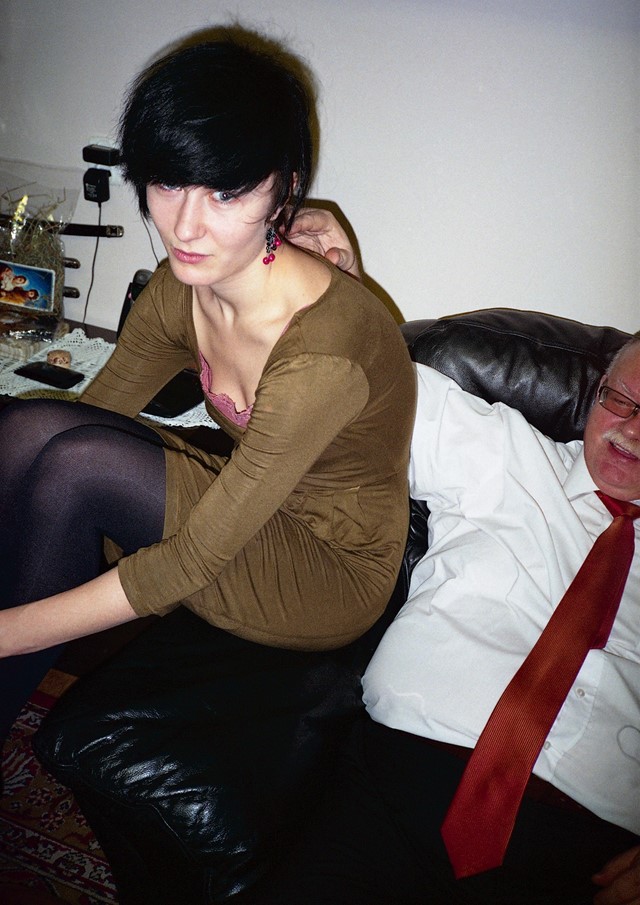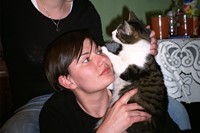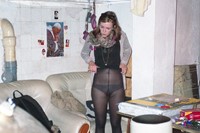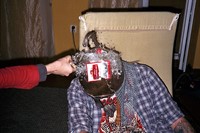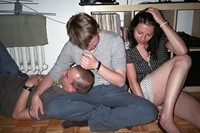“We are building a certain queer narrative in Poland,” says Polish photographer Agata Kalinowska, who spent the last decade photographing her community in moments of vulnerability and joy
Yaga – Polish photographer Agata Kalinowska’s debut photobook, which launches this week in London – was over a decade in the making. As a queer woman who, by her own assessment, doesn’t fit patriarchal standards of feminine beauty, Kalinowska hid in spaces of safety, places where the cruelty of the male gaze couldn’t harm her. For a decade she worked in bars in Poland, partying and documenting the reality around her through her photography. Kalinowska explains that taking pictures was a way of participating, “I wanted to dance in a different way. Photography was my kind of dance. My form of expression.” Living a nocturnal existence, going to sleep when others were awake, gave Kalinowska access to a unique world. “It was bloody, it was sweaty, it was crazy and I wanted to portray that,” she recalls. “I was this annoying person who was shooting people with a flash when they didn’t expect it.”
Throughout Yaga you can feel Kalinowska’s presence; she’s both an observer and a participant. The women portrayed in the book are her friends, lovers and ex-lovers; they’re helping her tell her own story as much as she is telling theirs. It’s incredibly intimate and you have to wonder at Kalinowska’s persistence and audacity. The women in her life stare piercingly into the camera, caught in the most vulnerable, unflattering of moments. “It’s how I see the people around me, with all of the aspects that they don’t really like about themselves. I think it’s very attractive,” Kalinowska explains.
Yaga is a profound rejection of the carefully curated self-images found across social media, but her brazen approach to photographing her friends has also gotten Kalinowska into trouble. “[People] don’t really like the image of themselves drunk, or doing crazy things, or asleep on the floor. I’ve lost some very good work because of romantic relationships that ended badly,” Kalinowska admits. However, the importance of presenting a rawness, one that truthfully interrogates life, trumps these challenges. “It’s my idea of looking at people; when they’re not on their best behaviour in their own mind – in my mind, they are beautiful,” she says.
Society’s prescriptive view of womanhood is meticulously picked apart throughout Yaga. Kalinowska documents a friend’s path to becoming a mother, while meditating on her own choice not to have children, weaving in photographs of the animals she’s chosen to care for instead. It was only when a friend pointed it out to her that Kalinowska realised that Yaga was also her way of coming to terms with never having met her mother, who died giving birth to her. “This was fascinating for me because it happened on an unconscious level. I was telling my story of taking care of animals as my way of life, but I was also telling the story of a missing mother,” Kalinowska explains.
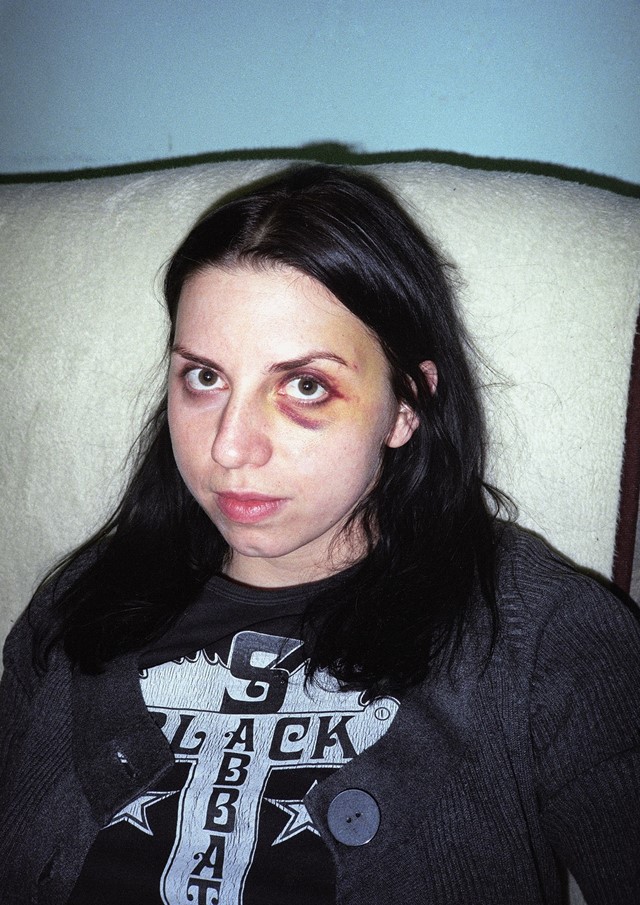
The masterful editing of Yaga creates the mysticism of a fantasy world, one that transcends the mundanity of the unkempt bars and flats that the subjects of the book inhabit. The name of the book refers to ‘Baba Yaga’ – a witch-like character from Slavic fairy tales who lives in isolation in the woods, portrayed as cruel and untrustworthy. “[Baba Yaga] is usually demonised in societies that are ruled by men because men are scared of wise, old women. It’s as simple as that,” Kalinowska says. “When she tries to be heard she is a real danger to society. You cannot really treat her as a thing, like men like to do, because she’s not a sexual object for men anymore so they are very confused. I think I live my life as that sort of person.”
It isn’t easy to live outside of the norms of femininity and heterosexuality in Poland. The country has become notorious for having ‘LGBT-free zones’ and in 2020, LGBTQ+ activists were detained for protesting the conservative government, which had been recently re-elected after running on an anti-LGBTQ+ platform. However, according to Kalinowska, the arrest of protesters sparked an awakening across the queer community in Poland and a flourishing of art made by queer creatives. It’s not surprising then that Yaga has angered some – mostly middle-aged men, as Kalinowska explains – just as much as it has been endorsed by the queer community. The fact that Yaga has received backlash only tells Kalinowska that it is doing its work: “We are building a certain queer narrative in Poland. I think we are fighting for visibility; not only for political visibility but also for visibility of very personal experiences.”
Yaga launches in London at the Photobook Cafe on April 6.
